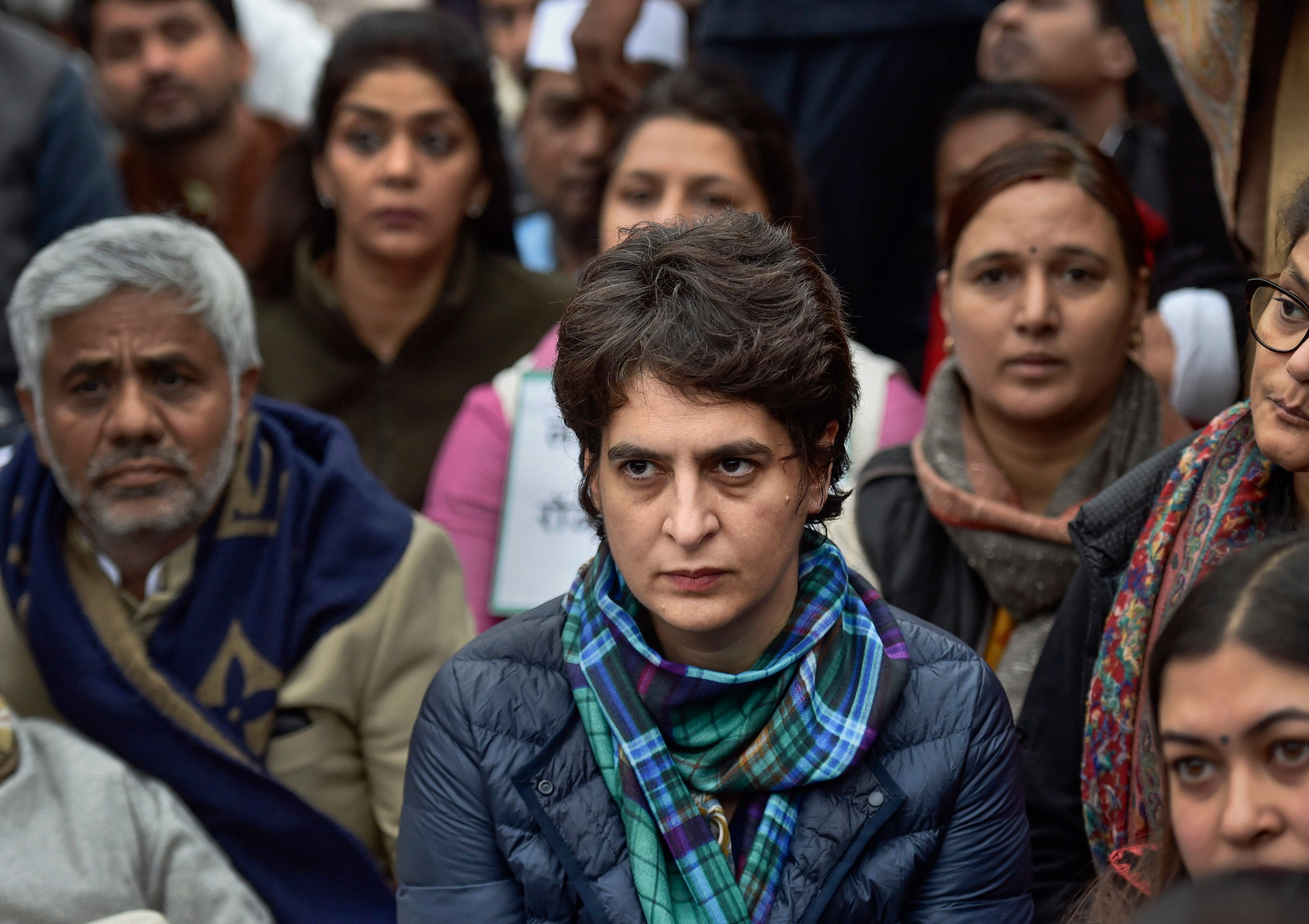
Priyanka Gandhi Vadra is emerging as a key Opposition figure in Uttar Pradesh although it is early to say if she will become a rallying point against the Bharatiya Janata Party (BJP) in the state’s fractious and fractured polity. As the general secretary in-charge of UP, where the Congress lost power in 1989 and has not since returned, she took her remit fairly earnestly from the start although the results have not started showing so far.
The expectation is after losing her official bungalow in Delhi’s Lutyens zone, Priyanka might finally be goaded to move to Lucknow and base herself there. At least that’s the word coming from the UP Congress that has been readying Priyanka’s Lucknow house for the past six months.
If she relocates, it will confirm a growing political trend that an inherited surname, a legacy and a sense of entitlement no longer guarantee success. Being grounded and remaining accessible to the party workers might well be the stepping stones to rejuvenating the Congress, that’s in a semi-comatose state in UP.
Priyanka’s spurts of activism began in August 2019 with a proposed visit to Umbha village in the Sonbhadra district where 10 Gond tribals were killed or injured in police firing when they protested their land usurpation by the upper caste Rajputs. She was detained by the administration before she entered Umbha but the arrest marked the first agitation by the state Congress in a long time.
Her effort to organise buses to ferry the UP migrants stranded in Rajasthan back to their homes during the national lockdown was aborted by the state government. It would not permit the vehicles to cross the border. Clearly, Priyanka’s move stung Yogi Adityanath, the chief minister. On an impulse, as it were, he mobilised state transport buses to do what she had set out to but could not.
Priyanka also raised the issue of the dismal conditions prevailing at a Kanpur shelter home, where two young girls were discovered pregnant. The UP government has served a show-cause notice to her over her Facebook post.
UP Congress missing in action
Unfortunately, Priyanka’s gestures—that stood in relief to the apathy displayed by the Samajwadi Party (SP) and the Bahujan Samaj Party (BSP), purportedly the pivots of Opposition politics—were not commensurate with a show of strength from the Congress. This became amply clear after Ajay Kumar Lallu, the recently appointed president of the UP Congress, was arrested on May 20 at Agra for protesting the administration’s refusal to allow entry to the buses carrying migrants. Lallu was released after nearly a month of being moved from one jail to another. The UP Congress never stood in solidarity with him. Neither veterans such as Pramod Tiwari and Anugraha Narayan Singh nor younger leaders like Jitin Prasada, R P N Singh and Laliteshpati Tripathi said a word. Worse, Sonia Gandhi was silent while Rahul Gandhi tweeted a week after Lallu’s arrest. Finally, Priyanka articulated her views in a column published in Navjivan India, a Congress-affiliated newspaper, but even after that nobody picked up a cue.
The indifference to an episode that ought to have been lauded as a first reflected two features: One, the absence of an organisation working at the grassroots, vital to galvanise the activists and two, the resentment against Lallu’s appointment. The Congress’s fief in UP is long since gone but there are enough overlords who imagine they reign supreme over non-existent principalities to countenance an Ajay Lallu.
If Priyanka is unlikely to become the nucleus of Opposition politics in UP, a major reason would be the Congress has not found a niche in the state’s identity-drawn politics. The domain, demarcated by religion and castes, is more or less carved up between the BJP, SP and BSP with smaller entities jousting for the little spaces that remain uninhabited. The Congress’ rainbow coalition of the Brahmins, Dalits and Muslims is verily El Dorado. If the party woos back the Muslims, the BJP promptly throws the “appeasement” bogey at it. Whenever the Brahmins feel uncomfortable in the BJP, their go-to habitat since 1989, the Congress figures as an option but where is the old caste regrouping, they ask?
In the quicksand of caste and religious equations, the BJP managed to gain pre-eminence through calibrated strategies undergirded by the Hindutva ideology that gave a sense of identity and empowerment, if only false, to large groupings of the backward castes and Dalits in addition to the upper castes. The SP and the BSP have reasons to worry over their vote depletion by the BJP.
Therefore, Priyanka’s crusades against the Adityanath dispensation, noteworthy as these are, cannot exist in a political vacuum and filling that void will be a tough grind for Congress.
(Radhika Ramaseshan is a Delhi-based political analyst and columnist)
Disclaimer: The views expressed above are the author’s own. They do not necessarily reflect the views of DH.